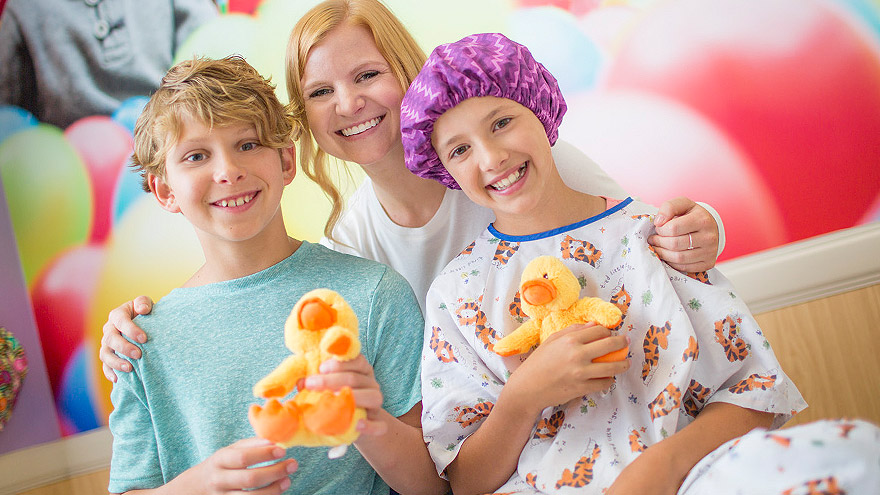Search
Results for 'what is an'
Clear-
What is Disordered Drinking?
An alcohol problem can affect anyone at any age. Many factors, including job stress, genetics or depression, may contribute to the start of disordered drinking. Drinking alcohol exists on a continuum. For example, if someone feels down in the dumps for some time, it doesn’t mean they are clinically depressed. So if someone goes through a period with above-normal alcohol consumption, it doesn’t necessarily mean they abuse alcohol. Although “alcoholic” and “alcoholism” are common, they are not clinical descriptions. Alcohol use disorder is the preferred term. Symptoms are often mild but can be the start of a more significant problem. According to the National Institutes of Health (NIH), over 16 million adults live with alcohol use disorder. Symptoms of Alcohol Use Disorder Do you recognize any of the following symptoms in yourself or someone you know? Drinking more or longer than intended Trying to cut down or stop drinking but not able to Having to drink more than you once did to get the same feeling Being annoyed when family members discuss your drinking Regretting your behavior while you were drinking
-
What Is the Role of a Child Life Specialist?
What is the role of the child life specialist? Here are common questions and answers about how these special individuals give both parents and kids peace of mind. Let’s face it: A hospital can be an intimidating place for just about anyone. But add in being a small human with very little worldly experience — aka a child — and it’s easy to imagine how overwhelming a hospital visit can be. Enter the role of the child life specialist. Liz Winkler, a child life specialist with Renown Children’s Hospital, explains how a Renown program puts young patients and their families at ease. What does a child life specialist do? Child life specialists help young patients develop ways to cope with the anxiety, fear and separation that often accompany the hospital experience. They give special consideration to each child’s family, culture and stage of development. As professionals trained to work with children in medical settings, specialists hold a bachelor’s or master’s degree in the areas of child life, child development and special education or recreational therapy. Our child life specialists are also professionally certified and affiliated with the national Child Life Council. Child life specialists also offer tours of Renown Children’s Hospital for families whose children are scheduled to have surgery. Child life supports children and families by: Helping children cope with anxiety, fear, separation and adjustment Making doctors, needles and tests a little less scary Providing art, music and pet therapy Organizing activities Addressing your concerns Telling you what to expect Creating a therapeutic and medical plan Offering a hand to hold What else is available at the Children’s Hospital that helps ease some of the stress of a hospital visit? Whether it’s seeing a pediatrician, getting a sports physical or looking for advice, our care is centered on supporting and nurturing patients and families at our many locations. We have kid-friendly environments to help ease some of the stress of a hospital visit. These include colorful exam rooms, kid-friendly waiting and common areas, and medical equipment designed especially for children. Our children’s ER is open 24 hours a day, seven days a week. So parents and caregivers have access to emergency care tailored to little ones — anytime, day or night. We have several pediatric specialists on the Renown team in areas including diabetes, emergency medicine, neurology, pulmonology, blood diseases and cancer. How can parents start to ease their children’s mind when they know a hospital visit is in the future? As with many things in life, good preparation can help kids feel less anxious about the experience and even get through recovery faster. It’s important to provide information at your child’s level of understanding, while correcting any misunderstandings, and helping to eliminate fears and feelings of guilt. If you’re anxious and nervous, your child may reflect these feelings and behaviors. So make sure you educate yourself, feel comfortable with the process, and get your questions answered.
Read More About What Is the Role of a Child Life Specialist?
-
Child Life Program
Providing emotional support for your children, and you. It is undeniable that hospitals can be a daunting experience for all, but when a child is faced with a difficult diagnosis or staying in the hospital, it can be especially overwhelming. Fortunately, Renown Health has a team of experts called the Child Life team to help. This group of devoted healthcare providers collaborate with kids who have been admitted to the hospital, as well as children whose family member is a patient at Renown, to ensure they understand every aspect of their visit, while also letting them be kids. Child Life Specialists provide support to children and their families by: Assessing patients developmental level and tailoring interactions to each individual family need Helping children cope with worries, fears and/or separation Making doctors, needles, and tests a little less scary by creating coping plans Organizing activities in the playroom and at bedside Addressing parent and caregiver concerns Preparing patients and families for what to expect Fostering a therapeutic environment through play opportunities Offering a hand to hold during tests, procedures, and tough stuff Offering services like art, music and pet therapy Creating special memories and mementos for children and families in times of grief and loss The Child Life Program is available seven days a week at Renown Health and the team can be reached at 775-982-5173.
-
Social Connections: Why They Benefit Your Health
Some days a chat with a friend is all you need to feel better. Why? Because humans are social beings. Although we have more technology than ever at our fingertips, sometimes we may still feel left out or disconnected. Dr. Buddy Coard, Ed.D., Psychologist at the Stacie Mathewson Behavioral Health Addiction Institute at Renown, discusses the importance of social connections and tips on how to keep connecting, warning signs of loneliness and how to feel less lonely. Why are Social Connections Important? Dr. Coard points to significant research on the topic of loneliness and social connections. He uses the findings below to detail how social connections affect our overall health. In a recent survey 40% of participants reported they sometimes or always feel that their relationships are not meaningful and that they feel isolated. Surprisingly, this survey suggests Generation Z (18-22 years old) is the loneliest generation. Another study associates loneliness as a risk factor for early death. It indicates lack of social connection heightens health risks as much as smoking 15 cigarettes a day, or having alcohol use disorder. In fact, loneliness and social isolation are twice as harmful to physical and mental health as obesity (Perspectives on Psychological Science, Vol. 10, No. 2, 2015). A 2018 study investigated several standard measures of social isolation, including marital status, frequency of religious service attendance, club meetings/group activities and number of close friends or relatives. The findings revealed race as a strong predictor of social isolation. In particular, black men and women were more likely to be lonely than were white men and women. Loneliness also switches on your body’s long-term “fight-or-flight” stress signaling system, which negatively affects your immune system. People who feel lonely have lower immunity and more inflammation than people who don’t. Dr. Coard recommends the following tips for those who feel lonely. Tips to Increase Social Connection Get outside. More and more nature prescriptions are common. In fact even a 10 minute walk can elevate your mood and get your blood flowing. Develop a schedule of activities to accomplish in a week, setting realistic goals. Monitor your technology. Of course, watching the 24/7 news cycle can be depressing. Turn off the TV and listen to music or read a book instead. Even better, use technology to connect with family members by having a virtual game night or book club discussion. Write it out. When was the last time you sent a good old-fashioned letter or card? Or even wrote in a journal? Try to brighten someone’s day with snail mail. Writing down your hopes and fears also helps you to get worries off your mind and process your emotions. With this in mind, there are also volunteer opportunities to support others by sending a handwritten letter to others battling depression. De-clutter your surroundings. Go through those old photos and put them in an album. Clean out a drawer, cupboard or closet. You will feel a sense of accomplishment and can donate items you no longer need that others can enjoy. Increase your joy by reducing your clutter. Warning Signs of Chronic Loneliness One size does not fit all when it comes to loneliness. For this reason, loneliness can be different depending on your particular situation and your unique personality. However, if you feel some (or all) of the following symptoms, chronic loneliness may be affecting you: Lack of ‘best’ or close friends. You connect with others on a surface level, but feel no one truly understands you. People are n your life, yet you are not connecting on a deep, intimate level with them. You feel lonely even when people are around. This means feeling disengaged or not part of the group when around others. You feel less than enough. You often doubt yourself or don’t feel good enough when comparing yourself to others. And social situations feel exhausting. What Can Someone Do to Feel Less Lonely? Dr. Coard offers the following suggestion for those with a lack of social connections: Talk with your doctor, psychologist or another healthcare professional. Sometimes chronic loneliness relates to longstanding negative beliefs that an individual has about themselves. Engage in behavioral activation. For example, being more active and involved in life by scheduling activities which can potentially improve your mood and decrease feelings of isolation. Initially behavioral activation can be very challenging due to lack of motivation, but setting a reasonable schedule of activities is a good start. Pay attention to your sleep. Sometimes when people become lonely they experience significant changes in their sleep cycle. Frequently they sleep too much, or too little. Make sure to maintain a normal, healthy sleep/wake cycle, following good sleep hygiene recommendations.
Read More About Social Connections: Why They Benefit Your Health
-
Five Tips for Maintaining Your Mental Health While Job Hunting
It is no secret that looking for a new job can be stressful and overwhelming. Yet a record number of Americans are quitting their jobs to look for new opportunities, a trend also known as the “Great Resignation.” While there are many reasons why someone might be on the hunt for new work, it’s important for all job hunters to check in with their mental health regardless of their job hunting circumstances. To learn more about maintaining your mental health while looking for a new job, we spoke to Dr. Mavis Major, a Licensed Clinical Social Worker and Behavioral Health Therapist at Renown Health. 1. Identify Goals When beginning your job-hunting journey, your first step should be to make a plan that focuses on quality over quantity. Make lists of companies you would like to work for and, if you’re looking to change fields or industries, make a list of careers that interest you. At this stage in the process, it’s also important to determine what salary range you’re looking for, what type of work environment you want (in-person, remote or hybrid) and understand what benefits are important to you. Identifying goals makes it easier to narrow down the list of jobs you apply for so you can produce quality applications rather than frantically applying for jobs without putting thought into the process. 2. Set Boundaries It does not matter if you are working full-time while applying for jobs or if applying is your job right now; it can be easy to get lost in the stress of it all. For that reason, it is essential to set intentional boundaries throughout the process. This can look like scheduling days that you fully take off from the job search or going for a walk before a big interview to clear your head. Setting boundaries will make you more productive overall and hopefully help you get your mind off the process. 3. Ask For Help Do not try and tackle this undertaking on your own. Once you have identified goals (see tip #1) make lists of people you know within those industries, and do not be afraid to reach out. Of course, never be afraid to reach out to a mental health professional to talk through why this process might be making you feel anxious. Talking to someone who is not your friend or family can give you a different perspective.
Read More About Five Tips for Maintaining Your Mental Health While Job Hunting
-
Bye-Bye Holidays, Hello Routines! Getting Kids Back into the Groove
The kids are back in school and the holidays are all but a distant memory: Now what? Karen Wagner, APRN, offers specific tips about getting kids back to their routines in the post-holiday-hustle-and-bustle. Are you finding the kids struggling with bedtime routines? Having trouble getting them to tackle homework? There’s a simple reason: The holidays messed with their mojo! Here, we talk with Nurse Practitioner Karen Wagner about what to do to get them back on the straight and narrow. Why Routines Are Important “Holidays are a fantastic time to get together with family and friends, so our routines are usually off — and this is understandable, “Wagner says. “While the holidays are exciting, they are chaotic and can put our kids out of the routines.” So how do you get kids back into those routines they crave? “Consistency/routines are crucial for our kids,” she says. “Most people — kids and adults — experience a let-down feeling after the holidays, and post-holiday adjustment takes time.” So what can we do, specifically? Wagner recommends the following: Re-establish family routines, including before- and after-school programs or child care routines. Once kids are back on the regular schedule, they’ll find that sense of familiarity as the old routine returns. But keep in mind, this won’t happen overnight. Encourage healthy eating, as the upheaval of their schedule can be offset by a balanced diet. Make sleep time a priority: Keep in mind that it might take up to three nights of strict bedtime to get them back on track. But enforcing normal bedtime will get their bodies back on a normal schedule. Return to usual chores and expectations. Nothing encourages a return to routine like reminding them of the basics. Incorporate indoor and outdoor time. They likely spent lots of time outdoors during our unseasonably warm winter break — and they even had a snow day or two! So encouraging both indoor and outdoor time will help them return to a circadian rhythm and tire them out from exposure to fresh air. “It is never too early to encourage a love for physical activity in kids by exposing them to fun fitness activities and sports,” Wagner says. “Physical activity improves bone health, cardiorespiratory and muscular fitness, decreases levels of body fat, reduces symptoms of depression, and improves cognitive skills and the ability to concentrate.”
Read More About Bye-Bye Holidays, Hello Routines! Getting Kids Back into the Groove
-
Renown Now Offering rTMS Treatment for Major Depression
Treatment offers patients safe, non-drug and non-invasive repetitive transcranial magnetic stimulation (rTMS) therapy to treat symptoms of major depression. Renown Health is committed to improving access to vital mental health services in northern Nevada. Today, clinical leaders at the Stacie Mathewson Behavioral Health & Addiction Institute at Renown announced they will offer repetitive transcranial magnetic stimulation (rTMS) therapy for people experiencing Major Depressive Disorder (MDD) under the guidance of a Renown psychiatrist. According to the National Institute of Mental Health, major depression is one of the most common mental disorders in the U.S. The disease causes people to experience sadness and helplessness, and in some cases, may prevent people from carrying out their daily routines. “We at Renown are proud of our national reputation as an innovator in implementing new models, technology and systems of care for our community,” said Tony Slonim, MD, DrPH, President and CEO. “We are working to transform care and demonstrate value in a way that appeals to patients and helps clinicians improve outcomes and reduce costs. There is now a sufficient body of evidence to accept the analgesic and antidepressant effect of high-frequency rTMS, and we are pleased to offer this promising therapy.” rTMS is a non-invasive procedure that uses magnetic fields to stimulate nerve cells in the brain to improve symptoms of depression. It is typically used when other depression treatments haven't been effective. This treatment for depression involves delivering repetitive magnetic pulses, so it's called repetitive TMS or rTMS. “Depression can be treated; however, for some people, medications and talking with a behavioral health expert may not be enough,” said Renown’s Division Chief of Behavioral Health, Richard A. Charlat, M.D., M.P.H. “We are pleased to offer rTMS therapy for people looking for a new way to fight depression and for whom other treatments may not have given them relief. We are committed to working closely with our patients to find the treatment that works best for them, so they can live their best lives.” “Nevada has the highest prevalence of mental illness and substance use in the nation,” said Steve Shell, vice president of the Stacie Mathewson Behavioral Health & Addiction Institute. “Combine that with the added stress and isolation many are feeling with the COVID-19 pandemic, and we know that offering patients safe, non-drug and non-invasive treatments- as well as essential mental health and addiction services are more important than ever.” How rTMS Works During an rTMS session, an electromagnetic coil is placed against the person’s scalp near their forehead. The electromagnet painlessly delivers a magnetic pulse that stimulates nerve cells in the region of the person’s brain involved in mood control and depression. It's thought to activate regions of the brain that have decreased activity in depression. Though the biology of why rTMS works isn't completely understood, the stimulation appears to impact how the brain is working, which in turn seems to ease depression symptoms and improve mood. There are different ways to perform the procedure, and techniques may change as experts learn more about the most effective ways to perform treatments. On average, patients undergo rTMS treatments for four to six weeks, five days a week for about 40 minutes a day. In all cases, a patient’s doctor will determine a treatment plan that’s best for the patient. This video shows what patients can expect during rTMS therapy. What Does rTMS Feel Like? rTMS therapy is an easy, in-office experience designed to be positive for patients. During treatment, people are awake, alert, and comfortably reclined in a spa-like chair. The first few treatments may cause discomfort at or near the treatment site, however, this is unlikely to last beyond the first week of treatment.1, 2 “The effects of depression can be devastating for the people battling it, as well as for those who love them,” said Stacie Mathewson. “No matter how dark life may seem, always know, there are incredible behavioral health experts at Renown ready to support and empower you as you seek the help you deserve.” Charles N. and Stacie L. Mathewson established the Stacie Mathewson Behavioral Health & Addiction Institute at Renown in 2018 to expand community access to prevention and intervention services for mental health disorders and alcohol and drug addiction. Renown is working to expand intensive outpatient treatment, partial hospitalization and medication-assisted treatment programs to better serve those struggling with mental illness and addiction. The Renown team is also passionate about prevention, mental wellness and is actively working to decrease stigma and encourage more people to seek the help they need. TMS therapy is cleared by the FDA and available by prescription only. It is commonly covered by most insurance plans. Patients must be referred by a behavioral expert to seek rTMS treatment. For more information and to make a patient referral, please call the Stacie Mathewson Behavioral Health & Addiction Institute at 775-982-5318. About Renown Health Renown Health is the region’s largest, locally owned and governed, not-for-profit integrated healthcare network serving Nevada, Lake Tahoe and northeast California. With a diverse workforce of more than 7,000 employees, Renown has fostered a longstanding culture of excellence, determination and innovation. The organization comprises a trauma center, two acute care hospitals, a children’s hospital, a rehabilitation hospital, a medical group and urgent care network, and the region’s largest, locally owned not-for-profit insurance company, Hometown Health. Renown’s institute model addresses social determinants of health and includes: Child Health, Behavioral Health & Addiction, Healthy Aging and Health Innovation. Clinical institutes include: Cancer, Heart and Vascular Health, Neurosciences and Robotic Surgery. Renown is currently enrolling participants in the world’s largest community-based genetic population health study, the Healthy Nevada Project®. Sources Trivedi MH, et al. (2006). Evaluation of Outcomes with Citalopram for Depression Using Measurement-Based Care in STAR*D Implications for Clinical Practice. Am J Psychiatry, 163(1):28-40 Rush AJ, et. al. (2006) Acute and longer-term outcomes in depressed outpatients requiring one or several treatment steps: a STAR*D report. Am J Psychiatry, 163(11):1905-1917.
Read More About Renown Now Offering rTMS Treatment for Major Depression
-
Fighting Depression with rTMS Therapy
If you ask most people who suffer from depression what it's like, it can be difficult to fathom. We spoke with the courageous and fearless Kathryn, who has endured major depressive disorder (MDD) most of her life. She recollects what it was like, and how grateful she is for a new rTMS therapy treatment she recently completed. Kathryn is a local resident who shares her story to provide hope and support to others surviving depression. From her accounts of the grueling years she faced this disorder to how hard she fought to find treatment, Kathryn is a true hero. According to the National Institute of Mental Health, major depression is one of the most common mental disorders in the U.S. The disease causes people to experience sadness and helplessness, and in some cases, may prevent people from carrying out their daily routines. No two people are affected the same way, meaning there's no "one-size-fits-all" for treatment. Finding help is typically a long and exhaustive journey for most surviving depression. The Long and Confusing Road to Finding Help Kathryn is no different from most major depressive disorder (MDD) survivors, fighting for a better future. Her mental health treatment journey started as early as 12 years old; however, she wasn't diagnosed with depression until much later in life. In her late 20s, a friend told Kathryn she was depressed, but like so many individuals battling the illness, Kathryn didn't know what depression was. The waiting lists to get into mental health treatment was devastating. She found mental health resources scarce, an issue far too familiar throughout the U.S. After being prescribed more than twenty different depression disorder medications, she wasn't sure who she was or if she'd survive. Determination to Fight Kathryn's darkest moments lead to experiences that are unspeakable to relive. But in her persistence to not give up, she began researching a more promising treatment. “I was looking for an evidence-based therapy,” says Kathryn. “In my research, I found Transcranial Magnetic Stimulation Therapy to be most promising.” After a yearlong waiting list for repetitive transcranial magnetic stimulation (rTMS) therapy in another state, Kathryn moved to Reno, Nevada, still searching for a location that offered this therapy. Thankfully, Kathryn's arduous journey led her to the Stacie Mathewson Behavioral Health & Addiction Institute at Renown. That is where she received news from her doctor, Gunjan Lehil, MD, that rTMS is offered for people looking for a new way to fight depression. How rTMS Therapy Works rTMS is a non-invasive procedure that uses magnetic fields to stimulate nerve cells in the brain to improve symptoms of depression – typically used when other depression treatments haven't been effective. This treatment involves delivering repetitive magnetic pulses, referred to as repetitive TMS or rTMS. During an rTMS session, an electromagnetic coil is placed against the person's scalp near their forehead. The electromagnet painlessly delivers a magnetic pulse that stimulates nerve cells in the region of the person's brain involved in mood control and depression. It's thought to activate areas of the brain that have decreased activity in depression. Though the biology of why rTMS works isn't completely understood, the stimulation appears to impact how the brain works, which seems to ease depression symptoms and improve mood. On average, patients undergo rTMS treatments for four to six weeks, five days a week for about 40 minutes a day. A patient's doctor will determine a treatment plan that's best for the patient in all cases. Life After rTMS Therapy After completing six weeks of rTMS therapy, Kathryn feels as though she is coming back to life. She has noticed her posture is different, and she is more animated. She is also more interactive at work, and her coworkers are more perceptive and positive towards her. Life at home is also improving, as Kathryn's family is noticing a difference. She notes that while she still faces feeling depressed, it's so much different from it used to be. The difference is, she can better decipher a bad day and work through the challenging moments. She has hope - which she never felt before. rTMS Therapy has given Kathryn a chance at life, and she's excited to start living! The Future is Fearless Kathryn says the way to success is never to give up and to keep pushing herself forward every day. Currently a veterinarian technician in training, Kathryn is working on getting her license. She loves working with all animals, but her true passion is falconry and helping injured birds of prey. She loves falcons because they are utterly fearless, just like her. "It's time for me to be brave and show up. I couldn't do that before," says Kathryn. "I'm grateful to have rTMS treatment, and I share my story in hopes of helping others."
-
10 Facts About Seasonal Affective Disorder
Seasonal Affective Disorder (SAD) is a form of depression linked to seasonal changes. Learn to recognize the symptoms of SAD in your kids (or yourself) should they appear. We checked in with Dr. Vanessa Slots, the Division Chief of General Pediatrics at Renown to help us understand this condition. 1. Blame SAD on the sun—or the lack of it Seasonal Affective Disorder is a more severe form of the “winter blues. Over-sleeping, feeling irritable or unhappy, and withdrawing from people are classic symptoms of SAD. Approximately 90 percent of people with SAD experience depressive symptoms yearly in the fall and winter, while about 10 percent have depression in the spring and summer. The causes of SAD aren’t explicitly known. Still, researchers believe it’s related to a change in circadian rhythms, with differences in the amount of sunlight during different times of the year as one factor. 2. The further north you live, the more common SAD becomes While Seasonal Affective Disorder is predominantly an adult condition, estimates are that one million children in North America have it. Interestingly, SAD does not occur in the tropics. 3. SAD is more recognizable in adults than in children Common symptoms include feeling “empty,” pessimistic, hopeless, short-tempered, restless and not knowing what to do with oneself. Symptoms vary greatly from one individual to the next. SAD is more common in women than in men. When symptoms are severe, physical examinations are required to rule out other medical causes and determine whether antidepressant medication is needed. 4. In teenagers, symptoms tend to revolve around school-related issues Schoolwork suffers, students have difficulty getting up in the morning and arriving late for class, homework is incomplete, and grades may plummet. Afflicted students have difficulty concentrating, remembering details and making decisions. They lose interest in activities that they previously enjoyed. Some teenagers tend to overeat, crave carbohydrates such as pasta and gain weight. Many teachers, school counselors and therapists should be more familiar with Seasonal Affective Disorder.
-
UNR Med and Renown Chair of Psychiatry Talks About Asking, Listening and Reminding Others They Are Not Alone In Their Fight
During September, Suicide Prevention Month, Dr. Takesha Cooper shares her thoughts on how you can support others As we observe National Suicide Prevention Month this September, Renown Health and University of Nevada Reno School of Medicine reaffirm a commitment to addressing mental health challenges and preventing comprehensive support to those at risk of suicide. Suicidal thoughts, much like mental health conditions, can affect anyone regardless of age, gender or background. Suicidal thoughts, although common, should not be considered normal and often indicate more serious issues. Takesha Cooper, MD, MS, FAPA, Chair, Department of Psychiatry and Behavioral Sciences, Professor of Psychiatry, University of Nevada Reno School of Medicine and Chief, Behavioral Health - Renown Health, Stacie Mathewson Behavioral Health & Addiction Institute, underscores the importance of creating safe spaces, listening without judgement and reminding others that they are not alone in their fight. “I frequently engage in conversations about suicide, a topic that touches many aspects of my life and work. As a psychiatrist, I have the privilege of sitting with my patients as they share their painful suicidal thoughts, and I strive to create a space where they feel safe to express their feelings openly and withoutjudgment. As a child and adolescent psychiatrist, I share the concerns of parents who worry deeply about their teens’ overwhelming emotions, self-injury, and feelings of hopelessness. Together, we work on simply validating their child's experiences, even when the instinct as a parent is to try and 'fix' things. As a mother, I can’t help but think about my own children and their peers, many of whom are grappling with depression and anxiety, especially in the wake of the pandemic. And as a teacher of resident physicians, I guide my learners in recognizing the signs of suicide in their patients and ensuring they have the tools to offer support and safety.” Providing care and support has always been my priority, but I also recognize that mental health is a complex journey, and everyone faces unique struggles. My training, and a deep respect for what my patients have taught me, allow me to navigate difficult conversations about hopelessness, but I believe the most crucial part of my role is simply being present, listening without judgment, and reminding people that they're not alone in their fight.” As we observe Suicide Prevention Month this September, I am reminded of the profound impact that simply asking and listening can have. While it might seem that 'just listening' isn’t enough, it is often the very thing that helps our patients and loved ones feel truly seen and supported.” #988; #Talk about it; #Listen; #Suicide Prevention Reno is Home to One of the Top Psychiatry and Mental Health Programs in U.S. Recently honored by Becker's Healthcare as one of the top psychiatry and mental health programs in the U.S., the integrated team at the Stacie Mathewson Behavioral Health & Addiction Institute at Renown Health on 85 Kirman Avenue in Reno, has an unwavering commitment to enhancing the lives of individuals and families affected by mental health challenges. The team of experienced psychiatrists, psychologists, social workers, counselors, and nurses is dedicated to supporting you and your family through every step of your journey to wellness. Services Include: Personalized mental health care Psychological and psychiatric assessments Outpatient medication management and therapy for adults and youth Substance abuse treatment Individual, couples, family, and group counseling Medication management and treatment Appointments can be made by calling 775-982-2862. Other services include the SOAR early intervention treatment program for those experiencing their first episode of psychosis. A 24-hour crisis stabilization center will open in 2024 for adults with mental health or substance use issues. The Connect Washoe County mental health collaborative, part of the hospital’s community benefit program, hosts the Youth Mental Health Summit, with a number of interventions resulting in reduced use of street and prescription drugs, lower hospitalization rates due to opioid overdose, and fewer cases of intentional suicide mortality in youth. “We will continue to strive for excellence and address the diverse needs of individuals struggling with behavioral health issues, says Takesha Cooper, MD, Department Chair of Psychiatry and Behavioral Sciences. “Our team comprises skilled psychiatrists, psychologists, therapists and support staff who collaborate to provide holistic and integrated care for our patients. As the region’s only not-for-profit health system, together with the support of grateful donors like Stacie Mathewson, we will continue to actively engage in outreach initiatives to raise awareness about mental health, reduce stigma and create a community that fosters healing and support.” About the University of Nevada, Reno School of Medicine The University of Nevada, Reno School of Medicine (UNR Med), Nevada’s first public medical school, is a community-based, research-intensive medical school with a statewide vision for a healthy Nevada. Since 1969, UNR Med has trained more than 3,900 students, residents and fellows. UNR Med continues to improve the health and well-being of all Nevadans and their communities through excellence in student education, postgraduate training and clinical care, research with local, national and global impact and a culture of diversity and inclusion. For more information, visit med.unr.edu. About Renown Health Renown Health is the region’s largest, locally governed, not-for-profit integrated health care network serving Nevada, Lake Tahoe, and northeast California. With a diverse workforce of more than 7,500 employees, Renown has fostered a longstanding culture of excellence, determination, and innovation. The organization comprises a trauma center, two acute care hospitals, a children’s hospital, a rehabilitation hospital, a medical group and urgent care network, and the locally owned not-for-profit insurance company, Hometown Health. For more information, visit renown.org.
-
4 Fantastic Health Benefits of Being Clutter-Free
The Benefits of Being Clutter-Free Gives you a better sense of well-being. Did you know procrastination is linked to clutter? According to a recent study clutter problems led to less life satisfaction, especially among older adults. Helps you lose weight. Constantly being in cluttered room, office or car can be stressful. All the undone cleaning tasks in the back of your of mind cause stress, which is linked to obesity. Promotes mental health. Having clutter around can make you feel anxious or overwhelmed. This prevents you from truly relaxing or focusing. Saves you money. It’s not a secret that money worries cause stress. According to a Journal of Consumer Research study, you’re more likely to make a purchase when you’re sitting in a messy room compared to a tidy room. Clutter-Free Tips Start with a plan. Make a list of your clutter-improvement priorities and the tasks needed to accomplish each one. Focus on one section of your home per week, so you don’t get overwhelmed. In fact, organizational expert Peter Walsh suggests starting with the easiest room first to gain momentum. Conversely, "The Life-Changing Magic of Tidying Up" author Marie Kondo suggests organizing by category (for example clothing or books). Experiment with an organizing plan that appeals to you. There are also many helpful on-line calendars you can use as a starting point. Delegate when you can. Include your children and spouse into your plan. Is uncle Bob an electrician? Then get him to swap out your eyesore of a ceiling fan or update an old light fixture. Of course it’s ok to outsource the duties - such as window cleaning or painting - if your budget allows. Buy less. The less you purchase the less you need to store, clean, keep track of, organize or dust. Seems simple, right? Not for everyone. On average we are bombarded with over 4,000 marketing messages a day, not to mention FOMO (Fear Of Missing Out) when we see our friends posting about their newest toys on their social media feeds. Focus on quality over quantity. When in doubt, throw it out. Still on the fence about what to throw away? Use these declutter decision-making guide questions to help you. Organize Your Health Along with taking care of your surroundings, make a commitment to get up to date on your health checkup and screenings. Preventing an illness is a bargain compared to the cost of a chronic disease. It's also a good idea to go through all of your medications and check the expiration date. Remember to properly dispose of medications. DO NOT flush medications down the drain or toilet, unless the label indicates it is safe to do so.
Read More About 4 Fantastic Health Benefits of Being Clutter-Free
-
Healthy Aging 5 Tips to Improve Happiness and Quality of Life
There are a few simple ways to encourage healthy aging that can translate to an improved quality of life. Here are some expert tips. What does healthy aging mean to you? If you’re like most people, you’re looking forward to removing the negative from your life — negative energy, thoughts, people and activities that don’t contribute to your best life. And while that’s a noble goal, too often we forget about ways to strengthen the positive parts of our lives. Expert Herbert “Buddy” Coard III, Ed.D, psychologist with Renown Behavioral Health, provides us with five positive behaviors to focus on to improve happiness and life satisfaction. Healthy Aging in 5 Easy Steps: 1. Connect – Make connections with friends, family, colleagues and neighbors. When you build strong connections, they can help enrich your life with new experiences and opportunities. Besides, having a support system to call upon when you need a favor is valuable as you age. 2. Be Active – Make time to get moving and work those muscles. Being active can include walking, practicing yoga, playing a game of pickleball or dancing. Exercise makes you feel good and keeps you health. Pick a physical activity that you enjoy, and don’t make excuses. Not only will being active help you build stronger muscles, it also helps you build strong connections with others. If you need a workout buddy, Meetup is a great resource to find like-minded people that share common exercise goals. 3. Take Notice – Be mindful and become more curious. Like a child, see the wonder and beauty of the world. Notice the things around you — the weather, the landscape, the mood and feelings of the people around you. By taking notice, it’s easier to learn to appreciate the things that matter. 4. Keep Learning – We never stop learning. Keep trying something new — a new course you’ve always wanted to try or a more challenging task someone has solicited for your help. Challenges keep us on our toes and increase our confidence and excitement in our day. OLLI (Osher Lifelong Learning Institute at the University of Nevada, Reno), brings diverse educational and social opportunities to active older adult learners (50+). EPIC (Educational Programs Inspiring the Community), offers a divers curriculum ranging from art classes to Accelerated training certificate courses. 5. Give – Be generous with your time, your knowledge and your talents by giving to friends, family and even strangers. Some easy ways to give is to show thankfulness, smile at people and volunteer. Sharing of yourself to a wider audience gives you a greater reward than just doing things for yourself. Nevada Volunteers Volunteer at Renown Health Practice these five tips to improve happiness and quality of life at any age.
Read More About Healthy Aging 5 Tips to Improve Happiness and Quality of Life









